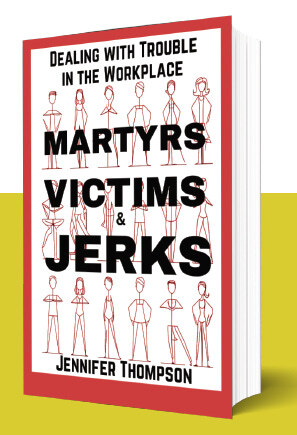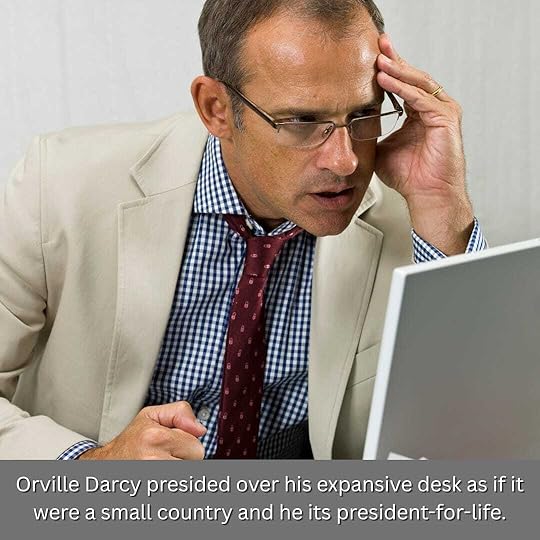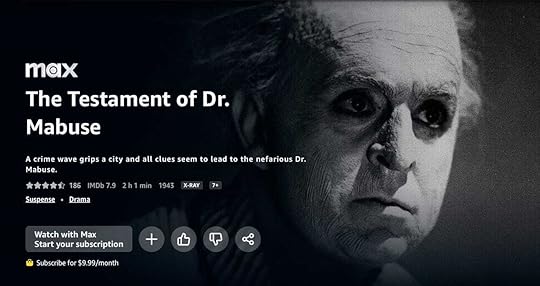Gerald Everett Jones's Blog: Gerald Everett Jones - Author, page 4
May 21, 2025
Clifford's Spiral: Chapter 6
In Clifford's Spiral, the stroke survivor’s past is blurry, and his memories are in pieces. He asks himself:
Who was Clifford Olmstead Klovis?

Chapter 6Stroke sufferer Clifford Klovis tries to piece together the colorful fragments of his memories. Meanwhile, who owned the lovely hands that were touching him?
Clifford’s eyelids floated closed, not because he was drifting off to sleep but because he’d given into bliss. Nurse Myra was running the heel of her right thumb with deep pressure repeatedly along his inner left thigh from knee to groin, tracing the route of his femoral artery. She’d just finished working on his calf with both thumbs, after having used acupressure reflexology on the soles of his feet. He marveled at her confident skill and the strength in her hands. When she’d been working on his feet, he’d wished he’d studied some reflexology himself. If he had, the precise points where he’d felt brief, excruciating pain would have given him clues about what was going on with his internal organs. He didn’t think he was sick — any more than the consequences of having had a stroke. His appetite was normal if not sometimes voracious, his digestion proceeded relentlessly, and he hadn’t noted any congestion in his respiratory tract. Given this lack of symptomatology, how had Myra been able to find those nasty pain points? Was his liver going bad? Tumors growing in his colon? Kidneys about to fail? Undoubtedly, any of those conditions would present other, more ominous, symptoms.
Wouldn’t they? But, come to think of it, why should I worry? A second stroke would probably finish me off, and there are undoubtedly more painful ways to go.
It’s like what his internist told him about prostate cancer — yes, it’s serious and potentially fatal — but it usually progresses so slowly that something else will get you first. None of his doctors had ever told him he actually had prostate cancer, so he wondered why this guy would have told him such a thing. These days they weren’t allowed to hint, much less withhold information. If you had something, they were supposed to tell you — describing your condition in no uncertain terms even if they were sure you’d rather not know. Gone were the days of letting the patient think he’d live forever until the day he felt so sick he knew he wouldn’t.
As Myra’s thumb reached the top of his inner thigh, it veered away quickly before touching his scrotum. It was a deft movement, executed at just the right place to avoid exciting him sexually.
May 18, 2025
Clifford's Spiral: Chapter 5
In Clifford's Spiral, the stroke survivor’s past is blurry, and his memories are in pieces. He asks himself:
Who was Clifford Olmstead Klovis?

Chapter 5Stroke sufferer Clifford Klovis tries to piece together the colorful fragments of his memories. His thoughts swirl.
The spiral was Clifford’s preoccupation:

It was a problem I fretted over, that I felt was somehow mine to solve. Like other problems I puzzled over, I knew there were finer minds in the world at work on these subjects. But I didn’t know any of those people. And if I did, doubtlessly they’d write me off as an amateur — a talented amateur, but I’d be ignored nevertheless.
Guest Post: Denise Turney - Off the Shelf
Here’s a wide-ranging and engaging discussion about proceeding from a blank page into snarls of intrigue, surprise, and delight.
Find out more about his wise and wonderful woman and her books at chistell.com.

Thinking About Thinking is a reader-supported publication. To receive new posts and support my work, consider becoming a free or paid subscriber.
May 14, 2025
Clifford's Spiral: Chapter 4
In Clifford's Spiral, the stroke survivor’s past is blurry, and his memories are in pieces. He asks himself:
Who was Clifford Olmstead Klovis?

Chapter 4Can you imagine how difficult it would be for you? Stroke sufferer Clifford Klovis tries to piece together the colorful fragments of his memories. The narrative’s sardonic tone recalls the wry wisdom of Kurt Vonnegut, and its preoccupation with male centeredness is reminiscent of Philip Roth.
Clifford didn’t want to dwell on guilty thoughts about his first marriage, which occurred fully five years after Ruth deserted him. In the interim, he’d experimented in various unsuccessful relationships, about which he would reflect much more during his institutionalization.
Why he should feel guilty about Tessa, he realized only later in life, was a matter of karmic arithmetic. The summation was complete after Tessa, too, left him, seven years after they were wed. She was still calling herself Tessa Merrihew Dunham, the Merrihew from a second marriage and the Dunham from a third. Her clutching onto surnames made Clifford wonder whether any of her divorces had been official. Not ever having met Tessa’s parents or siblings, what her maiden name was he never rightly knew, until, years later, he and she applied for passports and the name Smith appeared for the first time on a birth certificate she resurrected from a silver keepsake box.
Tessa’s first marriage, as she admitted during pillow talk years later, was over almost before it began. She was pregnant and in Florida. The groom was an unnamed fellow she called The Podiatrist, and she put up with him and aggressive mosquitos the size of dragonflies for almost three months. Even as she walked down the aisle (which must have been a short trip in the private ceremony), she suspected he was taking her on out of charity (the baby wasn’t his) but would eventually exact his price.
The foot doctor demanded routinely administered oral sex and an office assistant, and she performed both roles for a time. When in a matter of weeks her pregnancy ended in miscarriage, she was out of there and, like a heat-seeking missile, she flew straight into banker Merrihew’s hot tailpipe. That fellow, it turned out, was cold as cash, and their marriage didn’t last a year. Third husband Milton Dunham gave her children Timothy and Sarah, and only then did she realize that even the sobering responsibilities of fatherhood would not change his habits as a philanderer and a heartless batterer.
Damaged goods? Y’think?
I was, at my core, the obedient son of dutiful Southern Baptists. It was my job — my mission — to save whatever and whoever needed saving, including Tessa and her two fatherless children.
That’s where the karma comes in.
May 11, 2025
Clifford's Spiral: Chapter 3
In Clifford's Spiral, the stroke survivor’s past is blurry, and his memories are in pieces. He asks himself:
Who was Clifford Olmstead Klovis?

Chapter 3Stroke sufferer Clifford Klovis tries to piece together the colorful fragments of his memories. The narrative’s sardonic tone recalls the wry wisdom of Kurt Vonnegut, and its preoccupation with male centeredness is reminiscent of Philip Roth.
Clifford Klovis had undertaken two careers, one after the other. The two vocations were strikingly different. It was as if there were two people named Clifford Olmstead Klovis, one an advertising copywriter and marketing manager, and the other a professor of ancient history.
Clifford’s career in advertising began in New York City. In yet another family migration during Clifford’s junior year of college, the Klovises had moved from Greenwich, Connecticut to Des Plaines, Illinois, a suburb of the Second City, so that Franklin could undertake a new contract with the Chicago Transit Authority renovating old train stations. Clifford had hoped he could pursue acting after graduation, so he was more than ready to call himself a New Yorker.
But I was pretty sure my father wouldn’t go along with that plan.
Indeed, Franklin Klovis informed Clifford that, upon graduation, he’d either have to find a paying job quickly or come live with the family in Chicago until he did. Choosing advertising as a career was Clifford’s great compromise, but staying in New York City was his non-negotiable price. Rather than acknowledge his acceptance of the ultimatum, Franklin just resumed his usual practice of ignoring his son until his next letter asking for money.
In New York just a week after graduation, Clifford interviewed at Doyle Dane Bernbach and J. Walter Thompson. It was a recession year in 1971, and no one was hiring newbies. The cigar-chomping ad manager at F. W. Woolworth’s headquarters had said, “Come back in two years, after you’ve forgotten everything you learned in school.”
The experience at J. Walter Thompson had been instructive, but only in retrospect. “How do you know Wilson Marquand?” came the question from the hiring manager. Clifford was gratified to be informed his interviewer was a vice president. This was before he learned that vice presidential titles were almost as common in advertising as in the banking industry — an honorific intended to impress customers but not necessarily indicative of senior-management authority.
“We went to the same school,” Clifford said. He had gotten the referral from the alumni relations office at college. He assumed it was a shoo-in to the Good Ole Boy network and that just one such invitation would suffice.
“Here’s a set of guidelines,” the guy said. “Write some sample copy and come back in two weeks.”
Clifford did as instructed. He was sure his samples were not only clever but also solidly commercial. He wrote thirty-second TV spots for automobile tires, breath spray, and yogurt. He had a print ad for beauty supplies and a radio jingle for a department-store holiday sale.
“That’s fine,” the manager said, glancing at the portfolio on Clifford’s return. “Now you have some samples, and good luck on your job search.”
The guy could have said at the outset that they didn’t have any openings. And on accepting the homework assignment, Clifford could have asked enough questions to save himself the grief. But he hadn’t. If he did what was asked, he’d assumed he would be given a chance to do what was required. And be rewarded for it.
It took perhaps a month, but he went door-to-door. At each agency, he asked a pretty receptionist to see the creative director. He was turned down nine times out of ten, but he kept going. Eventually, he found himself across the desk from Lionel Bennett, the executive vice president at what he would later learn to call a boutique agency.
May 7, 2025
Clifford's Spiral: Chapter 2
In Clifford's Spiral, the stroke survivor’s past is blurry, and his memories are in pieces. He asks himself:
Who was Clifford Olmstead Klovis?

Chapter 2Stroke sufferer Clifford Klovis tries to piece together the colorful fragments of his memories. The narrative’s sardonic tone recalls the wry wisdom of Kurt Vonnegut, and its preoccupation with male centeredness is reminiscent of Philip Roth.
After the episode, Clifford Klovis experienced brief moments of stark clarity. He had a collection of puzzle pieces, each of them in sharp focus, with vibrant colors and shapes. Those elements should, in combination with others, become complex forms and scenes, around which he might be able to impart some meaning. He was still, at some level, in possession of his faculties. More like beads than puzzle pieces, these snippets were the glittering jewels of his past. It was just, at this moment, he was having difficulty stringing them together. Did this come before that? The answers made a difference.
The Insiders have not spoken to me since I was hospitalized. The gap in communication affords some relief. Their intentions always seem beneficent and their manner of expression gentle, but the news they give me is distressing. Why should I even pay attention to them? Facing the truth can be uncomfortable, at best. Maybe they bring wisdom, but at what price? This situation feels like a punishment. Perhaps they will tell me what I did to deserve this, how to earn my way out. Am I supposed to wait for a message?
Meanwhile, Clifford would commit himself to his personal struggle for survival — with as much clarity as he could achieve. After all, with what else did he have to occupy his days? There was sunlight on his face in the mornings. There were three meals served by the clock, the keen anticipation of which came fully an hour before the appointed time. The ingredients were indifferent. The soup, no doubt, came from a can. The meat had been boiled to grayish-ness, the vegetables cooked to mush. There was always coffee, as if anyone would care for instant crystals dissolved in lukewarm water with cornstarch cream-substitute and, if he was lucky, a packet or two of real sugar instead of some nameless sweetener. But, even then, the taste of food was spectacular, a feast to be perpetually craved. It was definitely something to live for. He had dim memories of wine, but such delights were in a paradise perhaps not to be revisited. That other, invisible people labored mightily over steaming kettles to deliver the riches of the here and now to him, with no special instructions from him, made him profoundly thankful. He must try to get their names someday and send them — what? — an enormous basket of fresh fruit? Cash tips would be the thing, especially during the holidays, but how would he get it? He had no idea where his money was. But he was confident of its existence. Something or someone was paying for all this professional, institutional treatment.
They don’t bother with people who can’t pay. Not these days.
He was wearing a wristband on his left forearm. It showed his name, followed by “Willoway Manor,” a number, and three two-letter alphabetic codes. He figured that was the name of this place, which would be neither a hospital nor a luxury hotel, and the number was the personal identifier of himself and his clinical file. The two-letter alpha codes must be medic-alert flags for conditions such as diabetes, high blood pressure, or drug allergies. He had no idea what his could mean. He just hoped none of those cryptographic messages meant “arrogant prick,” “charity case,” or “clueless idiot.”
As with Rush Hospital, Willoway Manor was a place he knew about but had never been inside. He’d only seen it as a name on an architectural sign on a high security wall along Busse Highway in Elk Grove Village, out in the northwest suburbs of Chicago. Rush was closer to downtown. It must have been the nearest emergency room to the restaurant where they’d had Gabe’s party. He didn’t know much about Elk Grove Village, which was miles away from his home in Evanston. The town did have a literal elk grove, a public park where a few of those wild, horned animals still grazed. The park was a bubble of nature in the midst of the sprawling metropolis.
He still thought of himself as an Angelino, which he’d been ever since he and Tessa had moved the family from Cleveland decades ago. But in the last year, he and Eleanor had moved back to the Midwest to supervise her mother Lillian’s hospice care. Clifford detested the weather — his blood had thinned in the perpetual Mediterranean climate of Southern California — but he didn’t miss driving on the freeway, and he enjoyed taking the CTA “L” train whenever he felt like going into the city.
That’s where else I’ve seen Willoway — on a brochure in a file folder Eleanor had. It was one of the places we’d considered for her mother — before her health went downhill fast. Eleanor must have told Jeremy about it. Yeah, it’s not a hospital. But it’s not exactly a resort, either. Lillian’s insurance wouldn’t have covered it. I doubt if Uncle Sam will be so generous. Did they do the math on my prognosis? Expected lifespan days ahead times reasonable and necessary daily maintenance fee is greater than, equal to, or less than maximum benefit cap?
* * *
Myra walked in. She was a vision.
May 6, 2025
Do you dread going to work?
KGO-TV clip used with permission.
I didn’t write this book - but I’m pleased and proud to have helped it along!

Do you know this guy? (Cartoon by Christopher Zeineh - just one example of the whimsical illustrations in the book.)

The new release is available in Kindle and trade paperback formats.
Thinking About Thinking is a reader-supported publication. To receive new posts and support my work, consider becoming a free or paid subscriber.
May 3, 2025
Clifford's Spiral: Chapter 1
In Clifford's Spiral, the stroke survivor’s past is blurry, and his memories are in pieces. He fusses over his lifelong curiosities about astrophysics and metaphysics, Christian faith and New Age philosophy, and why the spiral shape appears in bathtub drains and at the centers of galaxies. He has imaginary conversations and arguments with wives and lovers, as well as with Hypatia of Alexandria, René Descartes, his old mentor Reverend Thurston, and Stephen Hawking. Clifford's best teacher turns out to be his paraplegic son Jeremy, who has found his father's old letters and journals. Jeremy also wonders:
Who was Clifford Olmstead Klovis?

Chapter 1Stroke sufferer Clifford Klovis tries to piece together the colorful fragments of his memories. The narrative’s sardonic tone recalls the wry wisdom of Kurt Vonnegut, and its preoccupation with male centeredness is reminiscent of Philip Roth.
Clifford was sufficiently aware to know he was lying on his back. He felt woozy. Although there was light all around him, he couldn’t see anything. He didn’t know whether his eyes were open or closed. His visual field was pinkish-orange, with bright yellow at the center. No shapes or images. Just a happy glow.
He could feel a cold compress on the back of his neck. He was grateful for the sensation, but it was making him feel chilly all over.
He felt them lift him onto a stretcher. They must have covered him with a blanket because he felt warmer.
He guessed they were carrying him into an ambulance. It would be effortless to die now, to just slip away. But he was pretty sure he wasn’t going to die. Not now. He was in good hands, capable hands. They would take care of him, whatever needed to be done. Perhaps this feeling of confidence was from something they’d injected into him? If so, it was good stuff.
“I’ve got Brady,” he heard a man with a commanding voice say.
“Bee pee ninety-two over fifty-four,” a woman said, as if in response.
Moments later, the guy repeated, “I’ve got Brady.”
If Brady is on the phone, why don’t they take the call?
Clifford couldn’t remember anyone named Brady in their group at the restaurant. Last he knew, he was getting up from the table at his friend Gabe’s eightieth birthday party. He’d had too much to drink and a lot to eat. He was a sucker for Italian food, and, the icing on the cake, Bea had insisted on paying for everyone, and not just the cake. Eleanor wasn’t there. She was already off on one of her juggernauts.
“I’ve got Brady,” the paramedic said again.
Had he taken this fellow Brady down in his fall? Clutched at the waiter and upended his tray? Maybe poor Brady was injured, with a broken arm or something, and required more urgent attention.
Okay, okay. By all means, take care of Brady! But who’s got me?
* * *
April 28, 2025
Short Story: Some Serve Who Sit Home
Granted, the mahogany-clad surface was only a foot longer than those of other managers in the agency. But as indisputable testimony to Darcy’s ascendance, his office also had other appurtenances apparent to underlings schooled in the protocols of administrative power. He had three, rather than two, potted plants; two, rather than one, upholstered guest chairs with arms; a full-length couch plus what is euphemistically elsewhere called a love seat; and a circular glass-topped coffee table perched at knee level so that visitors would have ready access to their ubiquitous laptops during serious discussions. (We had government-issue phones, but doing work on them other than checking emails and taking calls was prohibited. It’s not that the devices aren’t secure. But our IT geeks have decreed that using thumbs for data entry is statistically more error-prone than typing on a keyboard. Dictation? No one trusts the bots.)

April 25, 2025
Movie Review: The Testament of Dr. Mabuse

Das Testament des Dr. Mabuse (HBO Max / Amazon Prime)
The evil genius Dr. Mabuse was the fictional creation of novelist Norbert Jacques, a citizen of Luxembourg who wrote in German. The character appeared in a series of thrillers and was reminiscent of Professor Moriarty of the Sherlock Holmes books.
Mabuse was reputed to be a hypnotist who controlled a gang of skilled criminals remotely. Das Testament, the manifesto he scribbled while incarcerated in an insane asylum, details plans for subversive and hugely disruptive criminal operations.
The novel was published in 1932, and its film adaptation, directed by Fritz Lang, was released the following year, coincident with Hilter’s rise to power. The movie was suppressed by the Third Reich and was not seen in Germany until a restored version appeared in 1961.
One reason these crimes were seemingly unsolvable was that the plotter’s motivations were baffling. These crimes appeared to be random and senseless. Besides giving detailed instructions to the mob, the doctor’s secret manifesto revealed his purpose in a chapter titled, “The Reign of Crime:”
Humanity’s soul must be shaken to its very depths, frightened by unfathomable and seemingly senseless crimes - crimes that benefit no one, whose only objective is to inspire fear and terror - because the ultimate purpose of crime is to establish an endless reign of crime, a state of complete insecurity and anarchy, founded upon the tainted ideals of a world doomed to annihilation.
When humanity, subjugated by the terror of crime, has been driven insane by fear and horror, and when chaos has become supreme law, then the time will have come for the reign of crime.
Criminals would rule a lawless world.
Among the catastrophic plots was a series of bank robberies in which the stolen cash would be replaced with counterfeit notes.
The objective was to destroy the public’s confidence in the country’s financial system.



